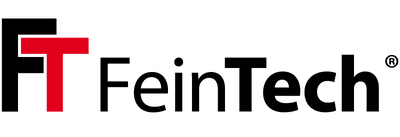Electrical and Electronic Equipment Act (ElektroG) - Information for private households
The Electrical and Electronic Equipment Act (ElektroG) contains a large number of requirements for the handling of electrical and electronic equipment. The most important ones are compiled here. We are registered under the number DE15618234 with the Stiftung Elektro-Altgeräte-Register.
1. Separate collection of waste equipment
Electrical and electronic equipment that has become waste is referred to as WEEE. Owners of WEEE must dispose of it separately from unsorted municipal waste. In particular, WEEE does not belong in household waste, but in special collection and return systems.
2. Batteries and rechargeable batteries
Owners of waste equipment must, as a rule, separate waste batteries and old rechargeable batteries that are not enclosed in the waste equipment from the latter before handing them in at a collection point. This does not apply if the WEEE is handed over to public waste management authorities and separated from other WEEE there for the purpose of preparation for re-use.
.3. Ways of returning waste equipment
Owners of WEEE from private households can hand it in at the collection points of the public waste management authorities or at the take-back points set up by manufacturers or distributors within the meaning of the ElektroG. An online list of collection and take-back points can be found here: https://www.ear-system.de/ear-verzeichnis/sammel-und-ruecknahmestellen.jsf
4. Data protection notice
Waste equipment often contains sensitive personal data. This is especially true for devices with memory technology such as computers and smartphones. Please note that you are responsible for deleting the data on the waste equipment to be disposed of
.5. Meaning of the symbol "crossed-out dustbin"
The symbol of a crossed-out dustbin, which is regularly displayed on electrical and electronic equipment, indicates that the respective device must be collected separately from unsorted municipal waste at the end of its service life. Batteries and rechargeable batteries must not be disposed of with household waste.

6.Lamps and luminaires
The return and disposal of lamps is also regulated by the ElektroG. Lamps and luminaires must also be returned by the consumer. This is possible free of charge at municipal collection points or take-back points of our system partner Lightcycle.
Battery Act (BattG)
Batteries and rechargeable batteries must not be disposed of with household waste. All end consumers are obliged to return used rechargeable batteries and batteries. They can be returned free of charge to the collection points of the public waste disposal authorities (ÖRE) as well as to the manufacturers and distributors.
Labelling
The symbol of a crossed-out dustbin indicates that the respective product is to be collected separately from unsorted municipal waste at the end of its life. Near the dustbin symbol you will find the name of the respective pollutant (if pollutants are contained).- "Cd" stands for cadmium
- "Hg" for mercury
- "Pb" for lead
Return
You can return used batteries and rechargeable batteries to the collection points of the public waste disposal authorities, to retailers and to FeinTech. If you would like to return old batteries and rechargeable batteries to FeinTech, then contact our Support.
Packaging material
Packaging Act - VerpackG
The VerpackG aims to reduce waste from packaging and to reduce the negative impact on the environment. Therefore, packaging must not be disposed of with household waste. Consumers are legally obliged to return packaging via the existing collection systems, e.g. paper bin, yellow sack, etc., as much sales packaging can be reused.
Our aim is to use only high-quality packaging material that is made of recyclable and environmentally friendly material, taking ecological aspects into account. This ensures that the goods are optimally protected on their way to you.
We are a member of the take-back system "Grüner Punkt - Duales System Deutschland". You can find more information at gruener-punkt.de
.